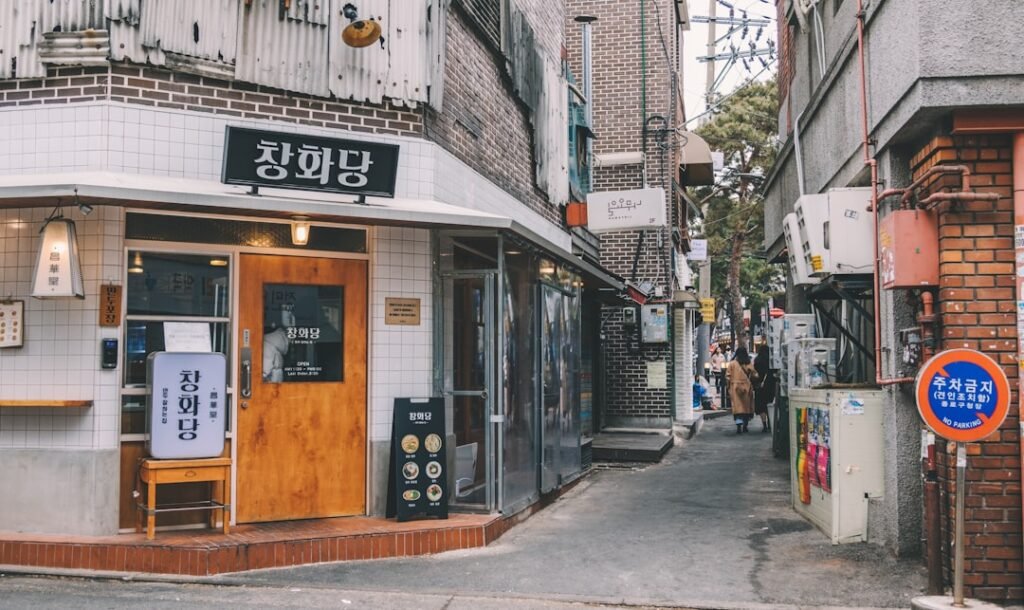

Korean Phrases for Making a Reservation
Making a reservation in Korea can be a straightforward process, but it is essential to understand the cultural nuances and language involved. Whether you are planning to dine at a popular restaurant, book a hotel room, or secure tickets for an event, knowing how to communicate effectively in Korean will enhance your experience. The ability to make reservations confidently not only demonstrates respect for the local culture but also helps in avoiding misunderstandings that may arise from language barriers.
In Korea, reservations are often expected, especially in busy urban areas where restaurants and hotels can fill up quickly. Understanding the local customs surrounding reservations can make your interactions smoother and more enjoyable. This article will guide you through the essential phrases and etiquette needed to navigate the reservation process in Korean, ensuring that you can make your plans with ease and confidence. Learn Korean in Oslo! NLS Norwegian Language School is now offering classes. Register today.
Table of Contents
ToggleSummary
- Making a reservation in Korea is an important part of the culture and requires understanding of the language and etiquette.
- Common phrases for making a restaurant reservation include “예약하고 싶어요” (I would like to make a reservation) and “몇 시에 예약하고 싶어요?” (What time would you like to make a reservation for?).
- When reserving a hotel room in Korean, it is important to know phrases such as “객실을 예약하고 싶어요” (I would like to reserve a room) and “체크인/체크아웃 시간이 언제인가요?” (What are the check-in/check-out times?).
- Booking a ticket or appointment in Korean requires phrases like “표를 예매하고 싶어요” (I would like to book a ticket) and “약속을 잡고 싶어요” (I would like to make an appointment).
- Polite language and etiquette for making reservations in Korean include using honorifics and polite speech levels to show respect to the person you are speaking to.
Common Phrases for Making a Restaurant Reservation
When it comes to dining out in Korea, making a reservation is a common practice, particularly at popular establishments. To initiate the process, you might start with a simple phrase such as “예약하고 싶어요” (I would like to make a reservation). This phrase sets the tone for your request and shows that you are serious about securing a table.
Following this, it is helpful to specify the number of people joining you, for instance, “두 명이요” (for two people), which provides clarity to the restaurant staff. Additionally, it is important to mention the date and time of your desired reservation. You could say, “내일 저녁 7시에 예약하고 싶어요” (I would like to make a reservation for tomorrow evening at 7 o’clock).
This level of detail ensures that the restaurant can accommodate your request without any confusion. Remember that being polite is crucial in Korean culture; therefore, using phrases like “부탁드립니다” (please) can go a long way in making your request more courteous.
How to Reserve a Hotel Room in Korean

Reserving a hotel room in Korea requires similar language skills but may involve additional details compared to restaurant reservations. When contacting a hotel, you might begin with “호텔 예약하고 싶어요” (I would like to make a hotel reservation). It is essential to specify the type of room you prefer, such as “싱글룸” (single room) or “더블룸” (double room), to ensure that your needs are met.
Furthermore, providing your check-in and check-out dates is crucial for the hotel staff to assist you effectively. You could say, “10월 1일부터 10월 5일까지 예약하고 싶어요” (I would like to reserve from October 1st to October 5th). Additionally, if you have any specific requirements, such as needing a non-smoking room or accessibility features, it is advisable to mention these at the time of booking.
This proactive approach will help ensure that your stay is comfortable and tailored to your preferences.
Booking a Ticket or Appointment in Korean
Booking tickets for events or appointments in Korea can be an exciting experience, but it requires some familiarity with the language. To start, you might say “티켓 예약하고 싶어요” (I would like to book a ticket). This phrase is versatile and can be used for concerts, theatre performances, or even transportation tickets.
It is important to specify the event or service you are interested in, as well as the date and time. For example, if you want to book tickets for a concert on a specific date, you could say, “10월 15일에 열리는 콘서트 티켓을 예약하고 싶어요” (I would like to book tickets for the concert on October 15th). Providing this information helps streamline the booking process and ensures that you receive the correct tickets.
Additionally, if there are different seating options available, do not hesitate to ask about them by saying “어떤 좌석이 있나요?” (What seating options do you have?).
Polite Language and Etiquette for Making Reservations
Politeness is deeply ingrained in Korean culture, and using respectful language when making reservations is paramount. Koreans often use honorifics and polite forms of speech when interacting with others, especially in formal situations such as making reservations. Using phrases like “죄송하지만” (I’m sorry, but) or “감사합니다” (thank you) can help convey respect and appreciation during your interactions.
Moreover, it is customary to greet the person on the other end of the line or at the counter before making your request. A simple “안녕하세요” (Hello) can set a positive tone for the conversation. Additionally, when concluding your reservation, expressing gratitude with “감사합니다” reinforces your politeness and leaves a good impression.
Being mindful of these cultural nuances will not only facilitate smoother communication but also foster goodwill between you and the service staff.
Useful Phrases for Confirming a Reservation

Once you have made a reservation, confirming it is an important step that ensures everything is in order. You might start by saying “예약 확인하고 싶어요” (I would like to confirm my reservation). This phrase clearly communicates your intention and allows the staff to assist you promptly.
It is also helpful to provide details such as your name and the date of the reservation for easy reference. For instance, you could say, “제 이름은 김민수이고, 10월 5일 저녁 7시에 예약했습니다” (My name is Kim Min-soo, and I have a reservation for October 5th at 7 PM). This level of specificity helps avoid any potential mix-ups and reassures you that your reservation is secure.
If there are any discrepancies or issues with your booking, being polite while addressing them will facilitate a more amicable resolution.
Expressing Special Requests or Preferences in Korean
When making reservations, it is not uncommon to have special requests or preferences that need to be communicated clearly. Whether it’s dietary restrictions at a restaurant or specific room preferences at a hotel, articulating these needs in Korean can enhance your experience significantly. You might say “특별한 요청이 있어요” (I have a special request) to indicate that there are additional details you wish to discuss.
For example, if you require vegetarian meals at a restaurant, you could say “채식주의자 식사가 필요해요” (I need vegetarian meals). Similarly, if you prefer a room with a view at a hotel, you might express this by saying “전망 좋은 방으로 부탁드립니다” (I would like a room with a good view). Being clear about your preferences not only helps service providers meet your needs but also demonstrates your consideration for their efforts.
Dealing with Changes or Cancellations in Korean
Life can be unpredictable, and sometimes changes or cancellations are unavoidable when it comes to reservations. Knowing how to communicate these changes in Korean is essential for maintaining good relationships with service providers. If you need to cancel a reservation, you might start with “예약을 취소하고 싶어요” (I would like to cancel my reservation).
This straightforward approach allows the staff to understand your request immediately. If you need to change details rather than cancel entirely, it’s important to specify what needs adjusting. For instance, if you want to change the date of your hotel booking, you could say “예약 날짜를 변경하고 싶어요” (I would like to change my reservation date).
Providing as much information as possible will help facilitate the process and ensure that any changes are made smoothly.
Understanding Reservation Confirmation and Payment Terms
When making reservations in Korea, understanding confirmation and payment terms is crucial for avoiding misunderstandings later on. After securing your booking, it’s wise to ask about how confirmation will be communicated. You might inquire with “예약 확인서는 어떻게 받나요?” (How will I receive my reservation confirmation?).
This question clarifies whether you will receive an email, text message, or simply verbal confirmation. Additionally, understanding payment terms is vital before finalising any reservation. You could ask “결제는 어떻게 하나요?” (How do I make the payment?).
Knowing whether payment is required upfront or upon arrival can help you prepare accordingly. Being informed about these details ensures that there are no surprises when it comes time for payment.
Tips for Communicating Effectively When Making a Reservation
Effective communication is key when making reservations in Korea. One of the best tips is to speak slowly and clearly; this not only helps ensure that your message is understood but also gives the other person time to process what you’re saying. If you’re unsure about certain phrases or vocabulary, consider preparing them in advance or even writing them down for reference during your conversation.
Another useful tip is to remain patient and polite throughout the process. If there are any misunderstandings or if the staff seems confused by your request, take a moment to clarify without becoming frustrated. Using gestures or even showing pictures on your phone can also aid communication when words fail.
Remember that kindness goes a long way in fostering positive interactions.
Conclusion and Recap of Essential Korean Reservation Phrases
In conclusion, mastering the art of making reservations in Korean involves understanding key phrases and cultural etiquette that enhance communication with service providers. From initiating restaurant bookings with phrases like “예약하고 싶어요” to confirming hotel stays with “예약 확인하고 싶어요,” each interaction requires attention to detail and politeness. Expressing special requests clearly and knowing how to handle changes or cancellations will further enrich your experience while navigating Korea’s vibrant hospitality scene.
As you embark on this journey of learning Korean phrases related to reservations, consider enrolling in courses at the NLS Norwegian Language School in Oslo. Their comprehensive Korean courses offer tailored instruction that can help you gain confidence in speaking and understanding the language effectively. With dedicated teachers and immersive learning experiences, you’ll be well-equipped to navigate reservations and much more during your travels in Korea!





